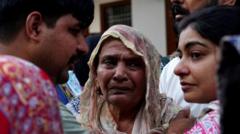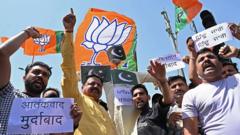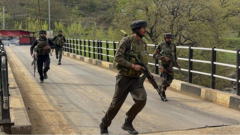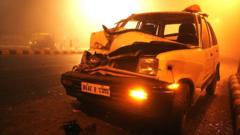Following a tragic attack in Pahalgam, India has implemented severe diplomatic and military measures against Pakistan, including closing major border crossings and expelling diplomats, amid accusations of cross-border terrorism.
India Escalates Measures Against Pakistan in Wake of Kashmir Attack

India Escalates Measures Against Pakistan in Wake of Kashmir Attack
Heightened tensions arise as India responds to a deadly terror attack that claimed the lives of 26 individuals in Kashmir.
In a swift and stern response to a devastating attack in Kashmir, India has announced a series of actions against Pakistan, marking a significant escalation in tensions between the two countries. Following an incident that resulted in the loss of 26 lives, including tourists, Indian authorities have closed the primary border crossing with Pakistan, suspended a long-standing water-sharing treaty, and expelled diplomatic personnel.
The attack took place on Tuesday at a picturesque site in Pahalgam, one of the deadliest events in the region in recent years. India holds that a group named the Kashmir Resistance is responsible, a claim that remains unverified by independent sources. The Indian government has characterized Pakistan as indirectly culpable, urging it to renounce what it perceives as support for terrorism—a statement that Pakistan categorically denies.
In addition to the border closure and treaty suspension, India has cancelled visas for several Pakistani nationals and ordered their departure within two days. Following the attack, officials in Pakistan convened their National Security Council to address the unfolding situation.
Despite expressing sympathy for the victims, the Pakistani foreign ministry asserted its long-standing denial of involvement in supporting militant activities in Kashmir. Meanwhile, the Indian government has vowed to bring the perpetrators of the attack to justice and has stated it will go after any individuals who may have orchestrated the events from behind the scenes.
Defence Minister Rajnath Singh emphasized the necessity of addressing those orchestrating such violence, indicating a comprehensive approach to the current crisis. Public outrage continues to swell in India, with widespread condemnation from international leaders, as the risk of renewed conflict looms large over the region.






















